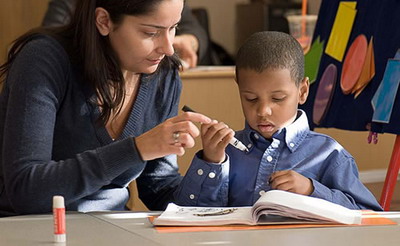
Teaching young children with autism to imitate others may improve a broader range of social skills, according to a new study by a Michigan State University scholar.
The findings come at a pivotal time in autism research. In the past several years, researchers have begun to detect behaviors and symptoms of autism that could make earlier diagnosis and even intervention like this possible, said Brooke Ingersoll, MSU assistant professor of psychology.
"It's pretty exciting," Ingersoll said. "I think we, as a field, are getting a much better idea of what autism looks like in infants and toddlers than we did even five years ago."
In the current study, Ingersoll found that toddlers and preschoolers with autism who were taught imitation skills made more attempts to draw the examiner's attention to an object through gestures and eye contact, a key area of deficit in autism.
Imitation is an important development skill that allows infants and young children to interact and learn from others. However, children with autism often show a lack of ability to imitate.
The study, which appears in the Journal of Autism and Developmental Disorders, analyzed children with autism who were 27 months to 47 months old.
The findings come on the heels of a paper Ingersoll published in the journal Current Directions in Psychological Science that highlighted recent findings in autism research by U.S. scientists.
Read more: http://www.sciencedaily.com/releases/2011/12/111212124518
No comments:
Post a Comment